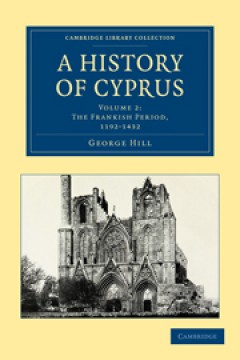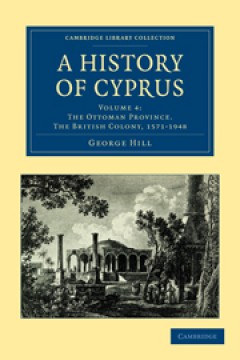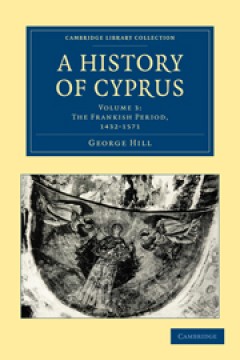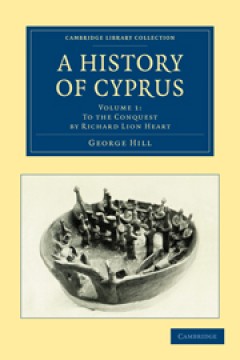Filter by

A History of Cyprus
Sir George Francis Hill (1867–1948), was perhaps best known as a numismatist, although his scholarly interests and accomplishments included a range of time periods and subjects. A classicist by training, Hill built his career at the British Museum's department of coins and medals. In his forty-three years there he produced volumes on coins of antiquity; Greek history and art; coins, heraldry,…
- Edition
- -
- ISBN/ISSN
- 9780511751714
- Collation
- -
- Series Title
- Cambridge Library Collection - European History
- Call Number
- -

A History of Cyprus
Sir George Francis Hill (1867–1948), was perhaps best known as a numismatist, although his scholarly interests and accomplishments included a range of time periods and subjects. A classicist by training, Hill built his career at the British Museum's department of coins and medals. In his forty-three years there he produced volumes on coins of antiquity; Greek history and art; coins, heraldry,…
- Edition
- -
- ISBN/ISSN
- 9780511751738
- Collation
- -
- Series Title
- Cambridge Library Collection - European History
- Call Number
- -

A History of Cyprus
Sir George Francis Hill (1867–1948), was perhaps best known as a numismatist, although his scholarly interests and accomplishments included a range of time periods and subjects. A classicist by training, Hill built his career at the British Museum's department of coins and medals. In his forty-three years there he produced volumes on coins of antiquity; Greek history and art; coins, heraldry,…
- Edition
- -
- ISBN/ISSN
- 9780511751721
- Collation
- -
- Series Title
- Cambridge Library Collection - European History
- Call Number
- -

A History of Cyprus
Sir George Francis Hill (1867–1948) was perhaps best known as a numismatist, although his scholarly interests and accomplishments included a range of time periods and subjects. A classicist by training, Hill built his career at the British Museum's department of coins and medals. In his forty-three years there he produced volumes on coins of antiquity; Greek history and art; coins, heraldry, …
- Edition
- -
- ISBN/ISSN
- 9780511751707
- Collation
- -
- Series Title
- Cambridge Library Collection - European History
- Call Number
- -

A Formula Book of English Official Historical Documents
This 1909 work forms a second supplement to Hall's Studies in English Official Historical Documents. It gives examples of a wide range of English ministerial and judicial documents from the ninth to the seventeenth centuries. These are arranged according to type and purpose, the majority in Latin. The intention is to assist the user of such archival materials, by familiarising them with the for…
- Edition
- Hubert Hall
- ISBN/ISSN
- 9780511696923
- Collation
- -
- Series Title
- Cambridge Library Collection - Medieval History
- Call Number
- -
 Computer Science, Information & General Works
Computer Science, Information & General Works  Philosophy & Psychology
Philosophy & Psychology  Religion
Religion  Social Sciences
Social Sciences  Language
Language  Pure Science
Pure Science  Applied Sciences
Applied Sciences  Art & Recreation
Art & Recreation  Literature
Literature  History & Geography
History & Geography